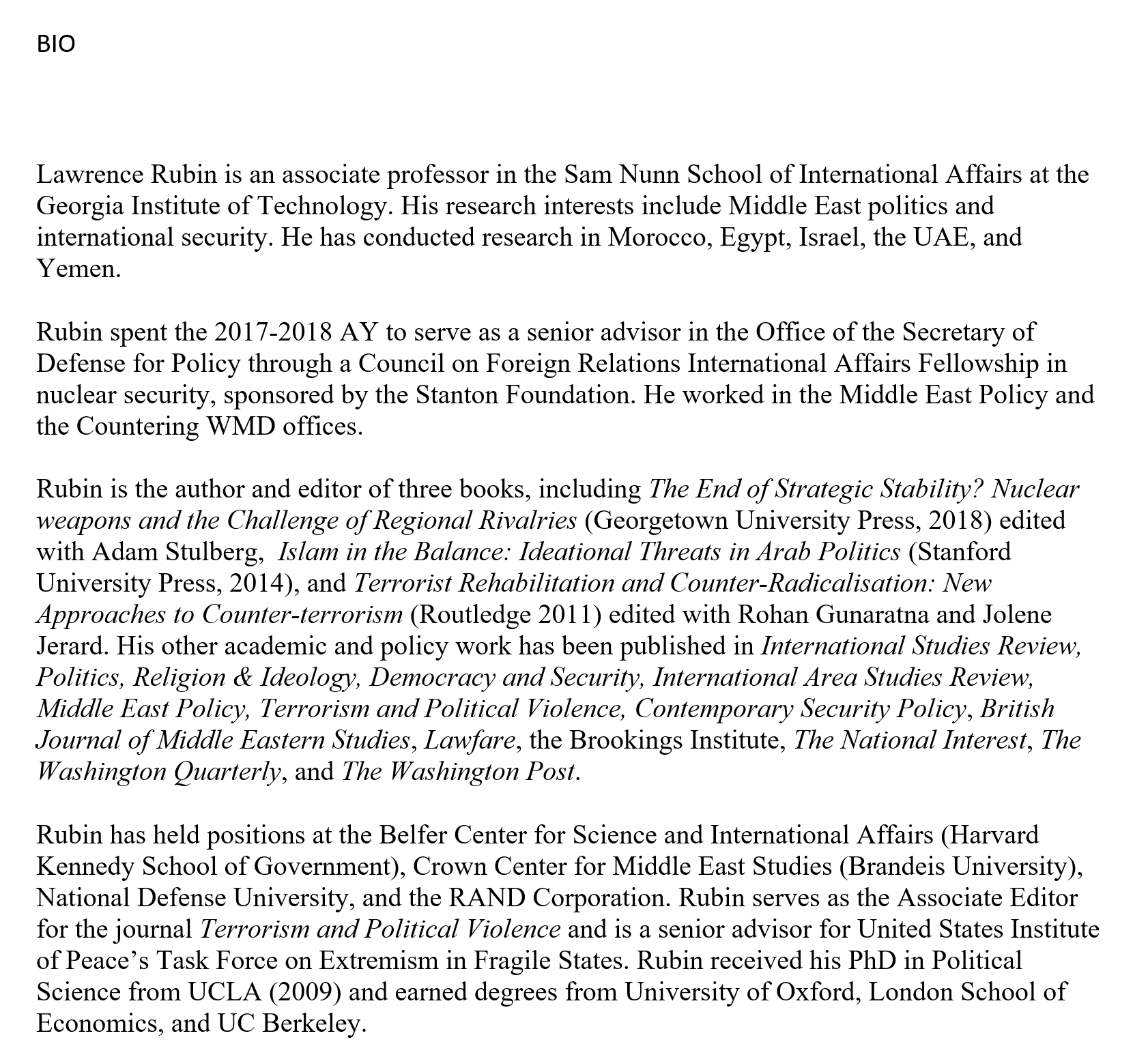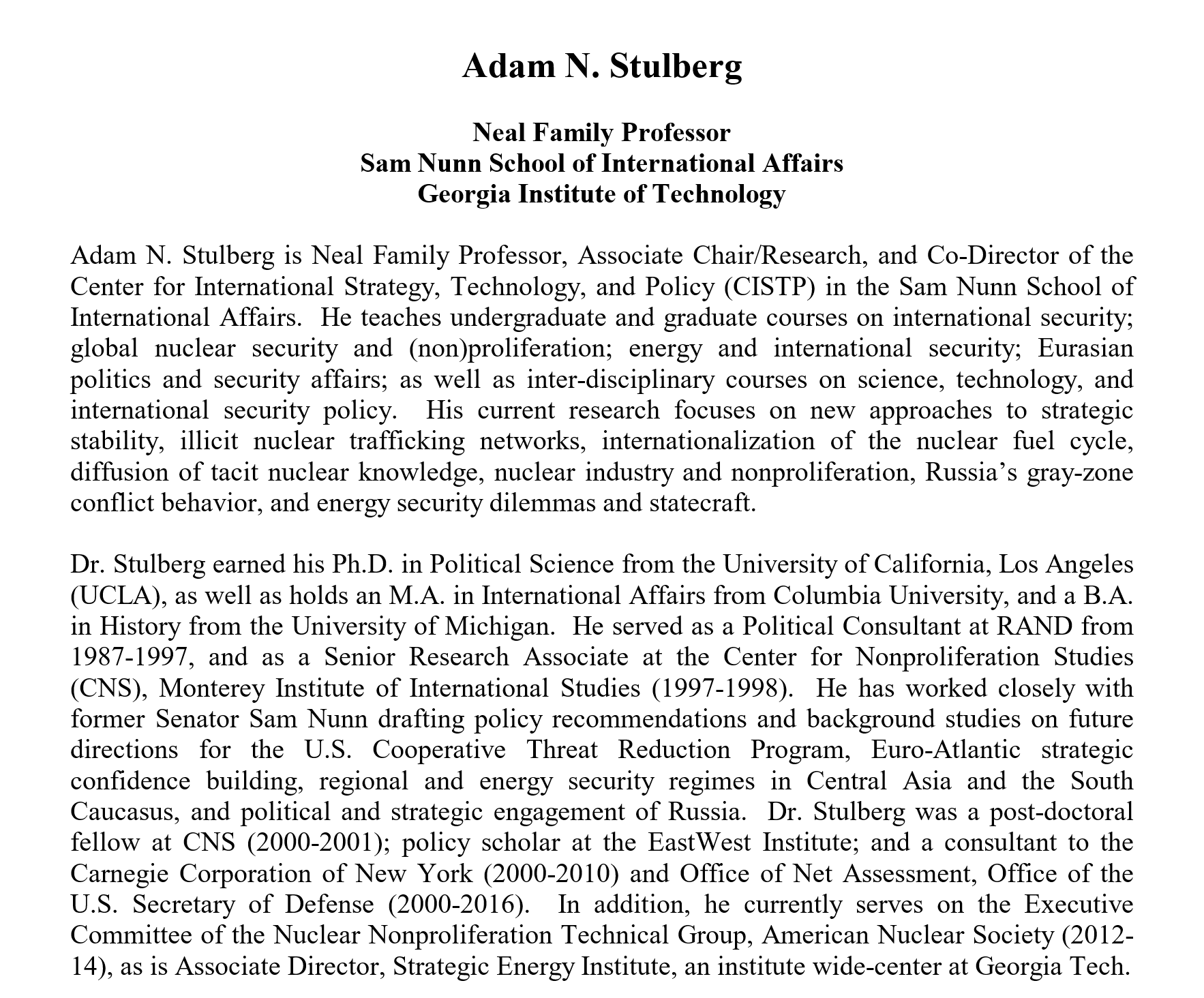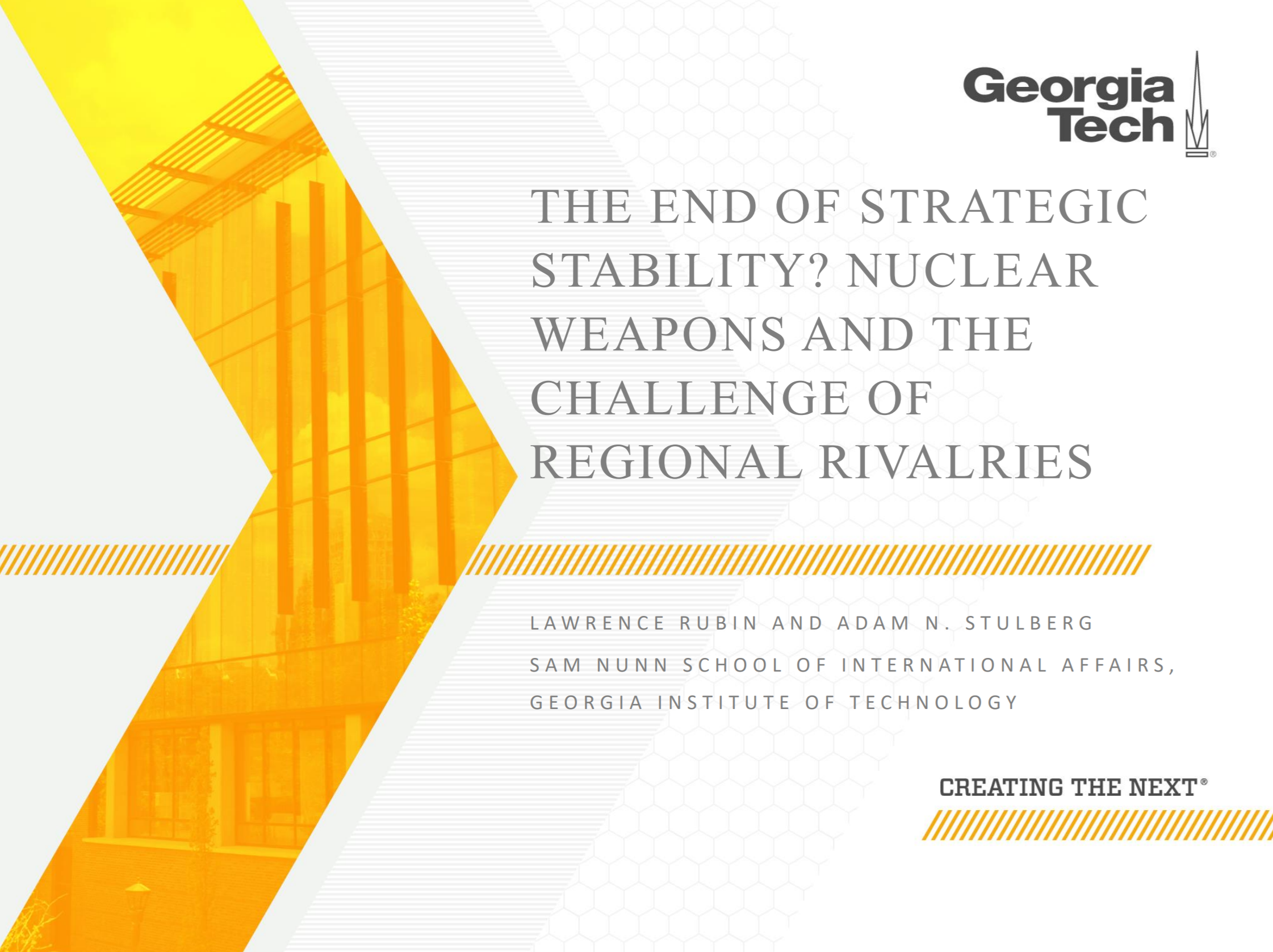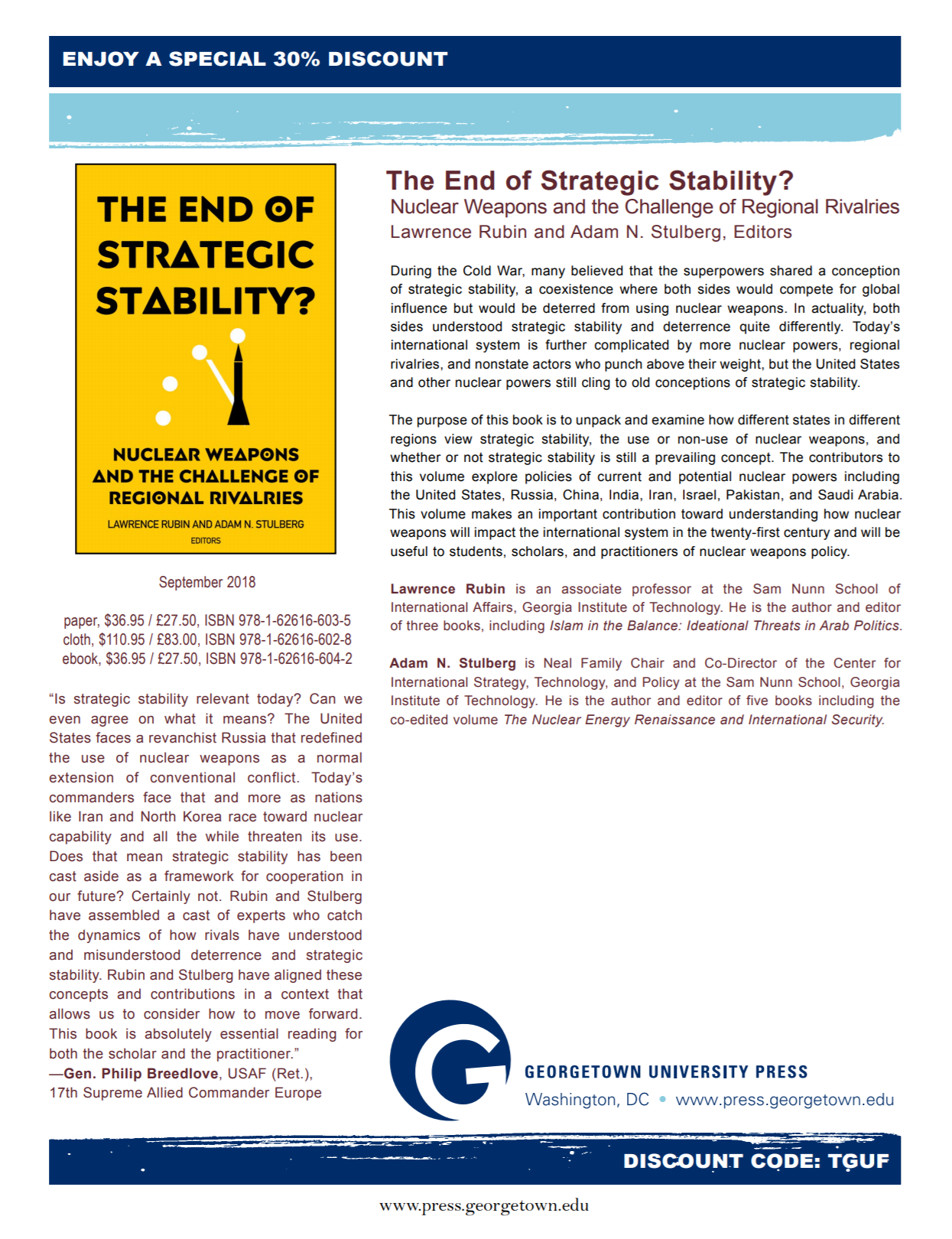The End of Strategic Stability? Nuclear Weapons and the Challenge of Regional Rivalries
“The End of Strategic Stability? Nuclear Weapons and the Challenge of Regional Rivalries”
Speakers: Rubin, L. (Georgia Institute of Technology); Stulburg, A. (Georgia Institute of Technology)
Date: 7 November 2018
Speaker Session Preview
SMA hosted a speaker session presented by Dr. Adam Stulburg (Georgia Institute of Technology) and Dr. Lawrence Rubin (Georgia Institute of Technology) as a part of its SMA STRATCOM Academic Alliance Speaker Series. Dr. Rubin first outlined two key questions: 1) How do regional rivals understand strategic stability? and 2) How do these understandings of strategic stability affect arms-racing, posture, and doctrine? He then explained that although strategic stability means different things in different contexts to different actors, it still remains important. Dr. Rubin concluded his portion of the presentation by proposing the adoption of tailored strategic stability, a “framework rooted in basic tenets not solely focused on the nuclear dimension as the organizing principle.” Dr. Stulburg then explained that asymmetries, interdependencies between nuclear rivals, subjective interpretations of critical concepts, and the diversity of practical meaning all contribute to the differences prevalent in interpretations of strategic stability. He also discussed a variety of cross-cutting conceptual distinctions, including nuclear weapons as absolute weapons / existential threats, national core values and fears, parity, and interdependence across multiple domains / relationships. To conclude, Dr. Stulburg outlined several direct and indirect implications for US strategy, and posed a variety of questions regarding transparency, the role of non-state actors, trade-offs, and the future of arms control.
Speaker Session Audio File
Download Dr. Rubin and Dr. Stulburg’s biographies, slides, and book flyer




Comments